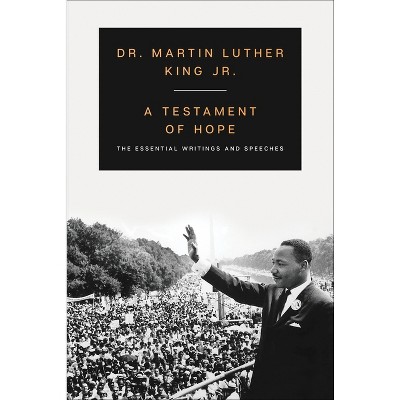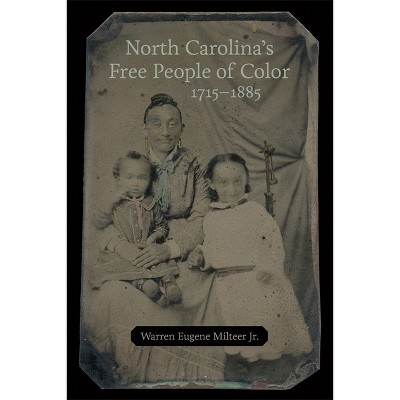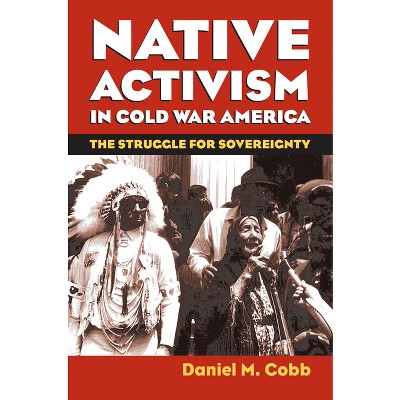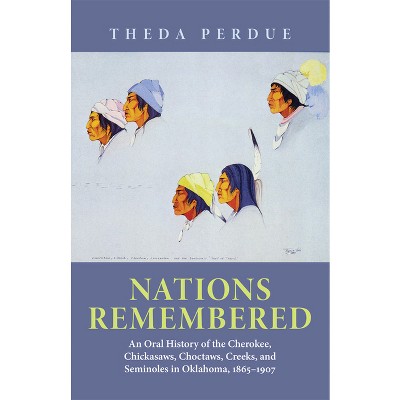Sponsored

Say We Are Nations - (H. Eugene and Lillian Youngs Lehman) by Daniel M Cobb (Paperback)
In Stock
Sponsored
About this item
Highlights
- In this wide-ranging and carefully curated anthology, Daniel M. Cobb presents the words of Indigenous people who have shaped Native American rights movements from the late nineteenth century through the present day.
- Author(s): Daniel M Cobb
- 316 Pages
- History, Native American
- Series Name: H. Eugene and Lillian Youngs Lehman
Description
About the Book
"In this wide-ranging and carefully curated anthology, Daniel M. Cobb presents the words of Indigenous people who have shaped Native American rights movements from the late nineteenth century through the present day. Presenting essays, letters, interviews, speeches, government documents, and other testimony, Cobb shows how tribal leaders, intellectuals, and activists deployed a variety of protest methods over more than a century to demand Indigenous sovereignty. As these documents show, Native peoples have adopted a wide range of strategies in this struggle, invoking 'American' and global democratic ideas about citizenship, freedom, justice, consent of the governed, representation, and personal and civil liberties while investing them with indigenized meanings."--Book Synopsis
In this wide-ranging and carefully curated anthology, Daniel M. Cobb presents the words of Indigenous people who have shaped Native American rights movements from the late nineteenth century through the present day. Presenting essays, letters, interviews, speeches, government documents, and other testimony, Cobb shows how tribal leaders, intellectuals, and activists deployed a variety of protest methods over more than a century to demand Indigenous sovereignty. As these documents show, Native peoples have adopted a wide range of strategies in this struggle, invoking "American" and global democratic ideas about citizenship, freedom, justice, consent of the governed, representation, and personal and civil liberties while investing them with indigenized meanings.
The more than fifty documents gathered here are organized chronologically and thematically for ease in classroom and research use. They address the aspirations of Indigenous nations and individuals within Canada, Hawaii, and Alaska as well as the continental United States, placing their activism in both national and international contexts. The collection's topical breadth, analytical framework, and emphasis on unpublished materials offer students and scholars new sources with which to engage and explore American Indian thought and political action.
Review Quotes
"Say We Are Nations provides a new and nuanced window into the twentieth-century Native American political and intellectual world." --Paul Rosier, Villanova University
"[An] excellent new edited document collection. . . . [featuring] an impressive number of unfamiliar and unpublished sources. . . . [that] demonstrates Native American intellectuals' and activists' long tradition of engaging the surrounding majority society and wider world on Indigenous terms, for Indigenous purposes, and not at the expense of Indigeneity. . . . [It] should generate lively discussions among students. . . . [and] will be of great value for professional scholarship on Indian intellectual history, activism, sovereignty, self-determination, economic development, postcolonial resistance, and, of course, politics."--Ethnohistory
"A must-have book for both individuals and libraries collecting works on Native American and Indigenous studies, history, and politics. . . . Highly recommended."--CHOICE
"A powerful contribution to making visible previously invisible individuals and communities, as well as tribal and multitribal political activities."--American Indian Quarterly
"A well-researched, valuable resource for scholars and educators in history, anthropology, and Native American studies."--H-Net
"An impressive collection. . . . [that features] resurgent and revitalized indigenous voices."--Journal of American History
"Native America in this book is as it should be: both diverse and uniform, individual and collective. . . . Don't look to this book for neat answers; instead you'll find the complexity and diversity that is most representative of Native nations today, yesterday, and in days to come."--American Literary History

















